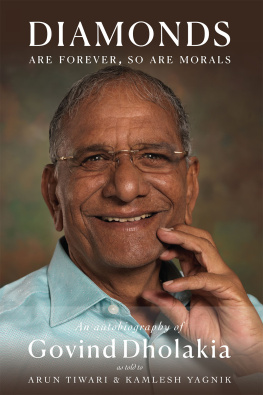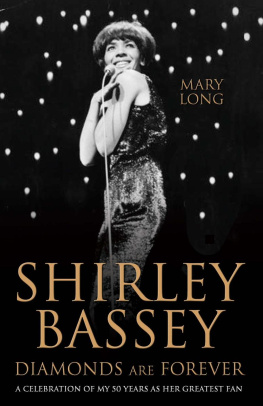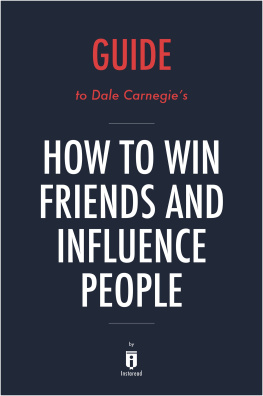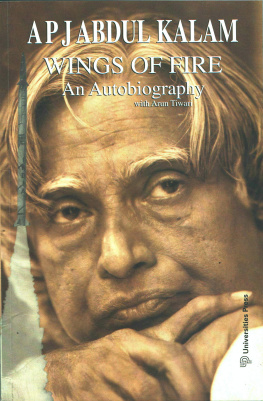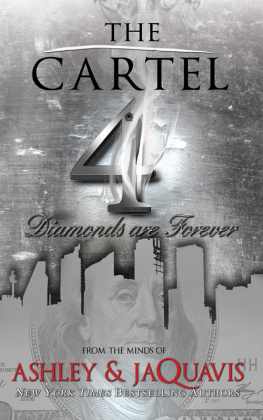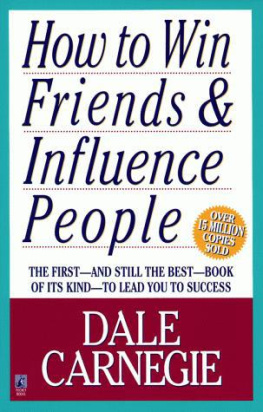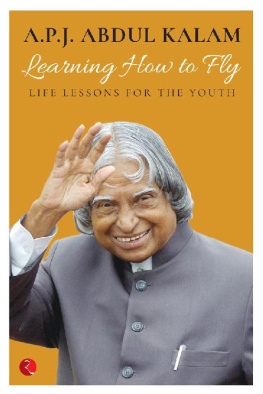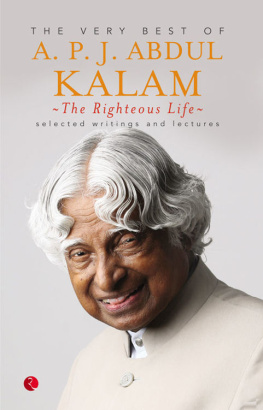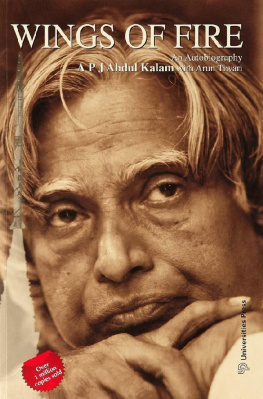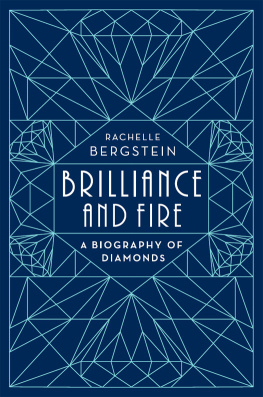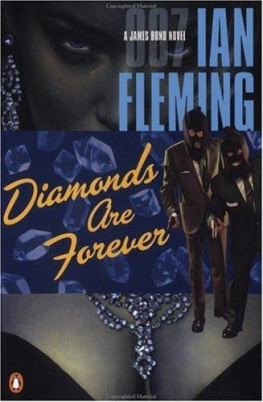Contents

Diamonds are Forever
PRAISE FOR THE BOOK
It is a pleasure to learn about the publication of your autobiography titled, Diamonds are Forever, so are Morals. The endeavor will surely serve as a source of inspiration for the coming generations. From the reminiscences and incidents of childhood, early education, to picking up life skills on the personal and professional front, nuggets of inspiring information are compiled in the book. The simile between morals and diamonds in the title of the book itself sets the tone. The emphasis on morals is particularly relevant to the modern times, especially for our youth. The reader gets swayed with the autobiographys flow of thoughts. May the publication receive the love and affection of the readers and motivate them to contribute for the larger good. I wish the publication all success.
Narendra Modi
Honourable Prime Minister of India
Now a leading tycoon in the global diamond industry, Govindbhai has risen from humble and rooted beginnings to make a mark for himself across the world. Since he hails from my district, I have witnessed the hard work, industriousness, and diligence with which he has conducted his business to reach tremendous heights. Along with his sharp business insights, Govindbhai has also been an epitome of kindness and generosity and has nurtured a culture of mutual respect amongst his people.
Dr. Mansukh Mandaviya
Union Minister for Health & Family Welfare and Chemicals & Fertilizers
Aptly titled, Diamonds are Forever, so are Morals, is Govind Kakas autobiographical book depicting the various stages of his life. It tells the reader about the principles and values with which he lived till date. It is most befitting and exemplary that he has put the principles and ethics of life at the centre, valuing them as Diamonds.
Parshottam Rupala
Union Minister of Fisheries, Animal Husbandry & Dairying
Here is a life journey of an individual born in interior Gujarat around the time of Indian Independence, showcasing how the intrinsic value system present in the Indian ethos can result in the building of an enterprise starting from scratch and bring it to the level of global recognition. The journey brings out vividly the triumph of family values, honesty and integrity in business development and progress in life.
A. S. Kiran Kumar
Former Chairman of the Indian Space Research Organisation
Ever since I got to know him, I can say that [Govindbhais] has been an untainted voyage. We do not have to merely go after physical pleasures or even have to become an accomplished ascetic. It is important to be just a seeker... The journey from zero to completeness looks not only successful but it is successful. Self-realisation, service to society and devotion to the Almighty are the three objectives of the seeker. As a monk, I feel that Govindkaka is a on a pilgrimage toward this triad.
Morari Bapu
Spiritual leader and renowned exponent of the Ramayan
I call life an event, like a flower blossoming on a plant. Instead of trying to become something, blossoming is a just and fair experience. This is the difference between a diamond made by nature and a diamond made suitable for an ornament after cutting and polishing it... [Govindbhais] life journey and experiences, will show readers their inner potential and inspire them.
Ramesh Oza - Bhaiji
Spiritual leader and preacher of Vedanta philosophy
Many people profess that the world is an illusion, and it is a place where one can easily get drowned. But Govindbhais autobiography is an example that one can attain salvation even while remaining involved in worldly matters. His life is full of ceaseless activity, revolving around honesty, ethics, morality, and spirituality. The high point of his life is his spiritual outlook and Satsang with saints and noble persons.
Swami Sachchidanand
Social Reformer, Humanitarian and Philosopher
In business, employees come and go [but] morals endure.... [this] compelling autobiography perfectly captures... his life of servanthood, generosity, thoughtfulness, and kindness outside the office [that] have left and continue to leave an even greater mark... Diamonds endure, and so will his legacy.
Tom Moses, Sr. Vice-President
Gemological Institute of America (GIA)
It is full of unique insights and valuable experience.
Evgeny Agureev
Deputy CEO, ALROSA, Mirny, Russia
In many ways, [Govindkaka] has been a yardstick by which I have always measured my professional moves. He is the gold, rather, the diamond standard for all of us. [His] story is nothing short of a fairy tale.
Colin Shah
Chairman, Gems and Jewellery Exports Promotion Council (GJEPC)
[This] book is a story of the three most important institutions that weave through our livesfamily, friends, and firms... In such a situation, relatives, friends and neighbours become partners and support each other through investments as well as in adversity... One cant help but conjecture that it is possible that the division reduced risks whilst at the same time provided a sense of comfort or insurance that the impact of failure, if it were to occur, would be limited. There are many interesting lessons for us all and for scholars of family business in this sublime book.
Prof. Errorl DSouza
Director, Indian Institute of Management, Ahmedabad
l
ll
( , 18, 73)
O Achyuta, [my] delusion has been destroyed and memory has been retained by me through Your grace. I stand with my doubt removed; I shall follow Your instruction.
(Shreemad Bhagvad Gita, Chapter 18, Verse 73)
Foreword
Autobiography is a fascinating genre of writing. At one level, it is easy to write and within the reach of all. One knows oneself better than others do; one enjoys a privileged access to ones life and can talk about it without fear of contradiction. On another level, autobiography is one of the most demanding forms of writing, requiring a kind of moral discipline available only to a few. In writing about oneself, one is prone to the dangers of self-glorification and even narcissism. Since one inevitably writes about others who are part of ones life, one is also likely to invade their privacy and say things they may not wish to share with others or tell them in a manner they find hurtful. There is generally not any good reason why anyone should be interested in ones life and, therefore, the writer needs to show why his life is of importance and thus to exaggerate the importance and uniqueness of his life. Human life further has both fluidity and solidity, and an autobiographer needs to relate his experiences to his changing and constantly reconstituted sense of identity. An autobiography cannot be a mere narration of events and experiences. It must reflect on them, appropriate and assimilate them, and turn them into an integral part of a coherent story. Autobiography is in this respect quite different from biography with which it is often confused. It is not a species or form of biography, a story of ones life written by oneself, but rather an independent and unhyphenated form of writing.
Given these and other features, an autobiography is vulnerable to several dangers such as narcissism, boastfulness, moral insensitivity to ones family and friends, and so on. Not surprisingly, few autobiographies succeed in avoiding them. Mahatma Gandhi, one of the first Indians to attempt an autobiography, was acutely aware of this and expressed his dilemma in the foreword to his autobiography. He concluded that he would write not his own autobiography but that of his experiments in truthful living, and rightly entitled it Satyana Prayogo Athva Atmakatha, putting the word autobiography not at the centre of the title as many believe but rather at the end.

